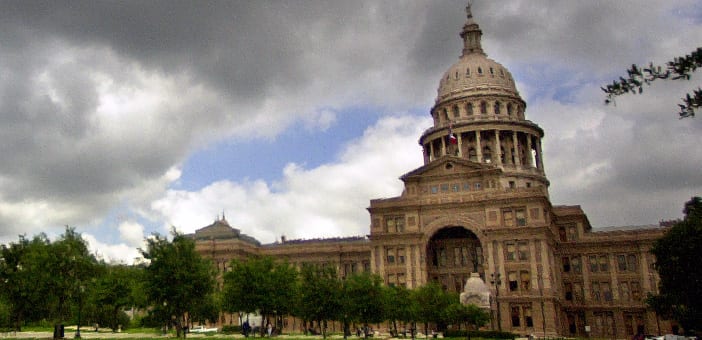This is the second in a series of articles previewing Pro-Life issues and debates expected for the Special Session of the 85th Texas Legislature that begins on July 18, 2017.
Even marginal Pro-Lifers have heard the rallying cry to “defund” Planned Parenthood or, more broadly, the abortion industry. If you are in Texas, you might have thought this was already accomplished in 2011 when several Planned Parenthood locations closed due to the reallocation of substantial state funding. However, the Pro-Life movement in Texas will continue making progress in the Herculean task of removing all taxpayer dollars from the abortion industry during the upcoming legislative session.
Planned Parenthood is an organization that is sustained, in part, by public funding from federal, state, and local governments. The abortion giant has nested themselves in an array of taxpayer-funded programs across our country and state. The Hyde Amendment prevents federal funds from directly paying for most elective abortions, but we have seen the funneling of such money to other divisions of Planned Parenthood, which enables the continuation of abortion. The most recent annual report for Planned Parenthood Federation of America for 2015-2016 shows that an astounding 41% of combined revenue for the organization comes from governmental grants and reimbursements.
While Texas began removing funding from the abortion industry in 2011, this goal has only been partially achieved. Each Texas state budget passed since 2011 has banned abortion businesses and their affiliates from an increasing number of state programs. However, as Texas Right to Life has written previously, such a strategy has amounted to a “whack-a-mole” game, not a decisive rule or law to prevent abortion facilities and their affiliates from siphoning any funding from taxpayers.
Thankfully, after several legislative sessions of playing the “whack-a-mole” game, Representatives Drew Springer (R-Muenster) and Matt Rinaldi (R-Irving) passed a rule on the state’s budget prohibiting any and all state funds, no matter the program, from being awarded to abortion businesses or their affiliates. This was a considerable victory for the Pro-Life goal of defunding the abortion industry, but the rule now faces the same problem as the federal Hyde Amendment – they both must be renewed with each budget and are not permanent law.
Additionally, the substantial win in the state budget from the regular session does not address the problem of local governments funding the abortion industry or showing preferential treatment to abortion facilities. Austin is just one example. Planned Parenthood leases space from the City of Austin and, in a long-standing agreement, pays only $1 in annual rent. Austin is a notorious offender for pro-abortion advocacy and currently pays a lobbyist to advocate for state funding of Planned Parenthood, so this is not surprising. What is shocking, however, is that no state law prevents local taxpayer dollars from being used to financially assist abortion providers, although such action fundamentally contradicts government’s mission of protecting citizens’ rights to life, liberty, and property. These appalling attempts to benefit abortion businesses are usually secretive, too. City and county budgets are not easily accessible to the public and taxpayers typically are forced to unknowingly prop up these abortion giants.
House Bill 1936, by Representative Springer, attempted to address these problems by prohibiting state and local governmental entities from funding or otherwise subsidizing abortion providers and their affiliates – a worthy goal. Unfortunately, this bill was yet another victim of delay tactics and was scheduled for debate on the House floor too close to the deadline to pass House bills, dying on the calendar during the recently concluded 85th Session of the Texas Legislature.
Governor Greg Abbott has since called a special session beginning July 18, and placed the issue addressed by House Bill 1936 on the call. Representative Springer again plans to lead on this issue in the House while Senator Charles Schwertner (R-Georgetown) is expected to usher the policy through the Senate. While this measure will not fix all the leaks and current problems with federal law (only U.S. Congress can plug those loopholes), passage of this policy would not only place our state budgetary provisions into Texas law, but would also prevent nefarious city and county governments from benefiting the abortion industry with your tax dollars. For a state committed to Life, continuing to strip abortion businesses and affiliates is common sense and should have been accomplished during the Legislature’s regular business. However, lawmakers now have been given a chance to correct such an oversight before gaveling out at the special session’s conclusion.


